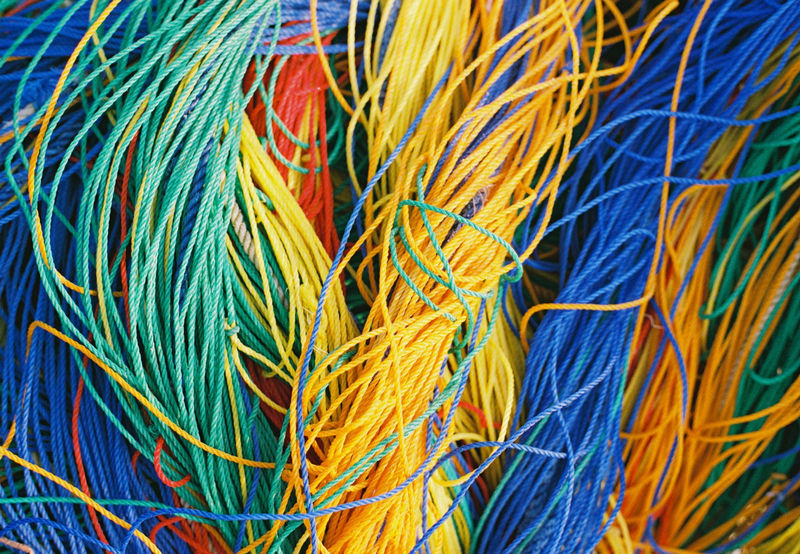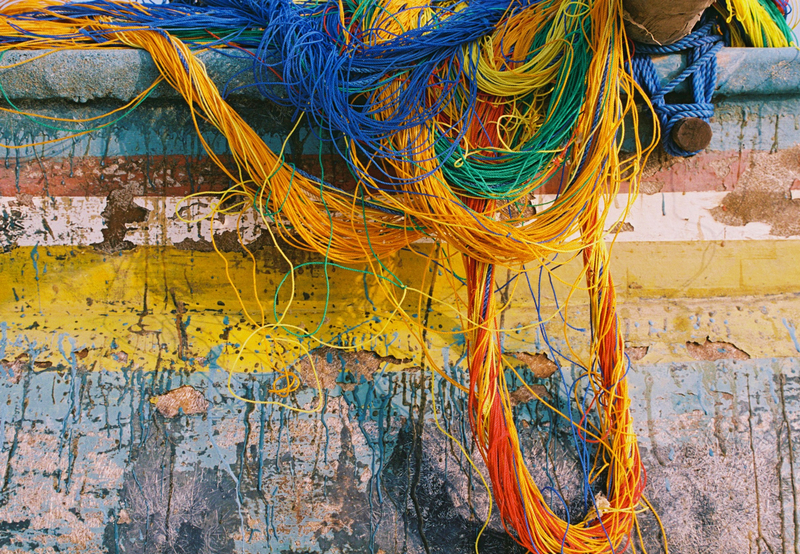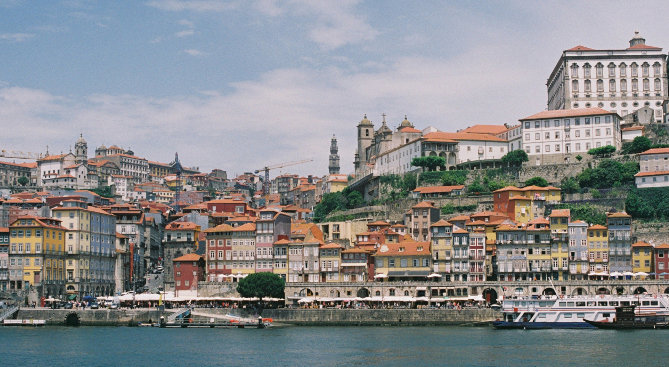Apr 8, 2018 0
Backpacking Sri Lanka
For the largest part of February I was backpacking in Sri Lanka together with Valerie. Before going there I didn’t know much about the country and didn’t have much of an idea what to expect — always a very good prerequisite for travelling, I think. Sri Lanka is a small Island just below South India and has a lot of similarities to India; in my opinion the term India Light is surprisingly fitting. Everything is similar, but just less of everything: less hectic, less people, less over the top. The food is very similar to Indian cuisine as well and there is especially a lot of influence from South India (there are a lot of South Indian restaurants too). As in India the food was outstanding, very rich in flavor, spicy and hearty, yet still light. A lot of curries, vegetables and fruits; very easy to come by as a vegetarian.
It feels as if tourism is catching a lot more traction in Sri Lanka in recent years, this is mostly because a civil war occupied the country until nine years ago and the tsunami catastrophe in 2004 put a recession to tourism. This “non-touristic” thing was the main theme of our journey and we mostly stayed in small, local guesthouses or homestays. The most touristic places are mostly on the south coast and we tried to avoid them. We only went to Tangalle, which is probably one the most non-touristic places on the south coast, and that was already too much for me — long beach promenades with exclusively western food, english music, etc.. But a lot of other places in the country are not touristic at all, especially during the off season.
Especially in the east it often felt like experiencing the beginnings of tourism (especially in Nilaveli). The few improvised restaurants there were essentially people who put a few tables in their backyard and call it a restaurant. I have experienced the people as very ambitious and in many places you can really feel how much they are willing to get out of poverty. That was really great, to see these beginnings. I’m sure that in ten years time the country will be much more touristic. Even now we often read blog posts by people who visited a certain village a year before us and wrote stuff like “very secluded, only one guesthouse”; when we arrived there were already some guesthouses, restaurants, etc.. Still, in a lot of places we very often were the only tourists in the bus or the area. You can feel quite alien being the only foreigner far and wide, but it’s interesting to experience this from time to time. We also had the case of waiters in restaurants making a scene when we enter, taking photos, bringing us all kinds of food to try.
Funnily, I often had the impression that the country is still shocked by the increase in tourism and has not yet adapted. We often had the case that we negotiated for a price and actually got the local, native people price. Or we arrived at a place, got out of the bus and were packing things into the backpacks with tuk-tuk drives already surrounding us, but not yet interrupting us and waiting patiently until we were finished with packing before making offers to take us somewhere. This experience is totally different in e.g. India or South America.
I would even say that I have never met a culture this friendly in any other country which I visited so far. People were immensely friendly to us and it happened a lot of times that children would wave at us, that people would approach us and talk to us, or that we were e.g. offered food on a long bus ride. All of this has happened in other countries too, just not as often as in Sri Lanka.
Our means of travelling were mostly local buses. This is very easy in Sri Lanka and enormously cheap, buses drive all the time everywhere. It was a nice experience to see the country this way; it’s always a bumpy, loud, and raving ride, but a very authentic possibility to experience the local culture, see small villages which you would otherwise not pass through and observe the way how locals interact with each other. We often observed the friendly way how natives who didn’t know each other before the ride interacted during a couple hours of common bus ride — sharing food, chatting, making music, etc.. In many many local bus rides we encountered other tourists only very seldom; only on two occasions there were other tourists in the same bus for a short time, on most rides it was approximately sixty locals and we two :-).
The local buses are enormously slow compared to e.g. taxis, the main reason for this is that everybody can stop a bus anywhere. So besides the usual bus stops, buses get stopped at arbitrary places all the time. For example, a bus might stop at a bus stop, then 500 meters later somebody will wave the bus to stop, then another 500 meters later some other person does the same again :-).
The question we were most often asked by locals was about our jobs in Germany ‒ for me it’s always easy because most people have some rough idea what a software developer does, but for Valerie (a psychologist) it’s next to impossible to explain an occupation which is practically non-existent in Sri Lanka to a native.
One thing that I found very calming: Sri Lanka is very small and wherever you are you can always, very easily, pay someone to drive you to some other part of the island in a couple of hours. Nothing is ever far away. If your train would be cancelled you could still e.g. pay a tuk-tuk or a taxi to drive you to the airport for a very affordable price. To me it was just a reassuring feeling to know that if I’m ever stuck in a place that I dislike it’s very easy to just carry-on.
There are basically no foreigners working in Sri Lanka, working visas are practically unheard of. One consequence is that you won’t find emigrated people who e.g. run foreign restaurants. So the western dropout hippie cafes which are very common in India/Mexico/etc. are nowhere to be found, only locals operate restaurants/shops/cafes.
For me, a highlight of our trip was the train ride from Ella to Kandy. Most tourists do the route the other way around (Kandy to Ella), which is why the train is always very packed in that direction. A good tip is to do it the other way around, our train was much less crowded and it’s the same track.
The British built the railway in Sri Lanka to transport tea leaves from the plantations to the coast. Today this makes for a very idyllic train ride, as the train winds its way through the hills. Often there are tea plantations along the way and the hot air and the strong sun result in a nice scent of the plants when driving through a plantation. The train is very slow and bumpy, so the journey is always quite long (7 hours compared to ~2 hours via car), but it’s a beautiful landscape and there are a lot of things to see. Since the railway is quite old there’s also a unique system of physical tokens — whenever a part of the track can only be passed by one train at a time a large physical ring is carried by the train which passes the track. This token then gets passed to the next train which ensures that there is only ever one train on this particular track.
I have highlighted a lot of positive aspects of our journey in this post so far, but shortly want to describe one negative aspect as well. Let me prefix this by saying that experiences like the following are important to me when travelling as it broadens ones view on the world. The topic is of sexism — discrimination based on gender, typically against women.
I already wrote about this topic and the way we as a couple were treated in South America here, but the experience in Sri Lanka was much more intense. Women are often treated as people of a lower class compared to males there and this has become sadly apparent to me in the way how Valerie was often treated. I have talked to some other travelers and my impression is that this mostly comes to light when travelling as a couple of male/female (compared to e.g. two femals travelling together).
Some examples: We eat breakfast, I get asked ten times overly politely if everything is truly absolutely fine, she gets asked (or even looked at) zero times. She asks for the bill, I get it. She pays, I get the change. She asks for an info, I get handed a paper with the info. People talk about her in the third person, even though she stands right besides me (“she can wait here”). We talk to somebody and the person has solely me as a reference person, with the body completely oriented towards me. When we are approached, people always only talk to me. When we enter e.g. a store for textiles and it’s completely obvious that she is searching for something and that I’m just passively waiting around, it’s still me who gets asked what we search for.
This is immensely frustrating, not only for the female. We usually try to counteract this kind of behavior in such countries — Valerie always orders bills, pays for stuff, asks for info, etc.. This didn’t help much this time though.
I want to highlight that this negative insertion should not be put too much in the foreground of our overall journey and similar things can be expected in South America or India. Not everyone acted this way, there were also a lot of people who treated us both the same way. We still perceived the people there as enormously friendly, eager to help, and welcoming. I just hope that this changes in the next years and hope that tourism by western female travelers encourages women there to demand more rights.
Some things that I quickly want to mention last:
- As always, buying a local SIM card was one of the best decisions of our trip. This is just immensely useful for maps.
- A funny thing that I know from Mexico: in a restaurant we order two ginger beer (because they are on the menu). The waiter takes the order, goes to his motorcycle, drives away for twenty minutes and comes back with…guess it…one ginger beer! 😀
- Coconut Sambol: the Sri Lankan food is very good and eating vegetarian is very easy. Coconut Sambol is the specialty that I liked most and have also prepared at home now several times. Basically it’s freshly grated coconut with shallots, tomatoes, salt, chilli, and lime. This recipe is quite good and contains some more details (and pictures).
- I often fall for this: showing locals or tuk-tuk drivers a map when asking for something and after a couple minutes of pointless discussion I finally get it: they can’t read neither text nor maps, but don’t want to admit it and instead talk around it. Whenever this happens I’m once again reminded of how many elementary things we take for granted in Europe.
- We asked a local (who was 25 years old) to take a photo of us. Since we only had analog cameras with us, I handed him a small one. He took a photo and asked us to check if it’s fine. I told him that there’s no way, because it’s an analog camera. He didn’t understand what I meant and asked where the display was :-). That’s really interesting: he didn’t know at all about analog photography and probably never saw one of the old cameras or photo prints. I’m pretty sure that for him the age of photography starts with digital cameras and smartphones.
In total our three-week journey cost us pretty much exactly 520 Euro each with an additional cost of ~600 Euro each for the flight. We could probably have gotten the flight cheaper, but unfortunately Air Berlin filed for insolvency at the time when we booked, so many flights got a lot more expensive for some time.





























